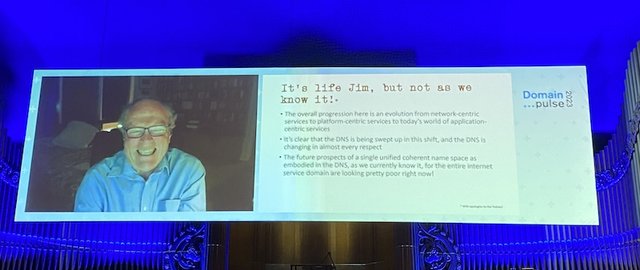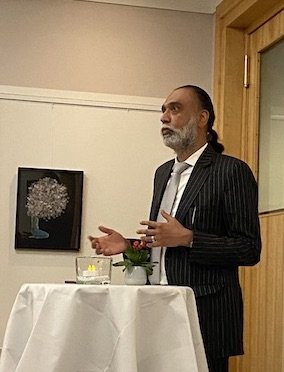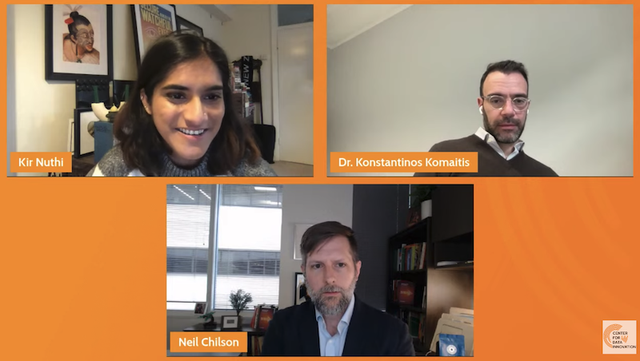With one RIPE Working Group gearing up to make its response to an EC proposal, another reviewing existing IPv6 policy, and Task Forces making progress on their own charters - it's been an active month for the community. The RIPE Chair Team reports on all this and a host of industry events that have been taking place.

RIPE 86
The RIPE Programme Committee has now opened the call for presentations for the RIPE 86 meeting in Rotterdam. Please submit a talk before 12 March. RIPE 86 is going to be a hybrid meeting again, so both in-person and virtual presentations are encouraged.
And remember that the DNS Hackathon - jointly organised by DNS-OARC, Netnod, and the RIPE NCC - will be held on the weekend before the RIPE Meeting at the same venue!
Ongoing RIPE Community Activities
February is a short month, but we still saw lots of activity. Here's a look at some of the highlights:
EU Consultation on Digital Infrastructure
The RIPE Cooperation working group has set up small team to start work on a written response to the consultation on a proposal about the future of the electronic communications sector and its infrastructure issued by the European Commission. This proposal has informally been discussed in the community for some time now under labels such as "sender pays" or "fair share" and is a repetition of earlier proposals issued primary by the telecom sector. I would recommend you to follow the discussions on the Cooperation WG mailing list.
IPv6 policy review
As mentioned in my last update, the RIPE Address Policy working group has started an activity to do a more thorough analysis of the RIPE IPv6 policy. On 20 February, the WG held an online interim session to discuss some details such the future of the HD Ratio, the need for documenting business and network plans when requesting IPv6 from the RIPE NCC and the suggestion to make allocations on nibble boundaries. You can find the minutes and dates for future interim sessions on the Address Policy WG webpages.
Current policy proposals
The following policies are currently being discussed in the Address Policy WG:
You can find more information on the Current Policy Proposal webpage.
DNS Resolver BCP Task Force
The DNS Resolver BCP Task Force also started its work. They are currently discussing the outline of the draft BCP document and will share a draft with the community soon. There are also a number of open policy documents.
Code of Conduct Task Force
After the deadline for feedback for the RIPE Code of Conduct process document has ended, the Code of Conduct Task Force is now finalising this document and the document describing the selection of the Code of Conduct team document. More information will be sent to the RIPE Discussion mailing List soon.
RIPE NCC Community Projects Fund
In November 2022, the selection committee of the RIPE NCC Community Project Fund selected eight projects submitted by community members that will receive funding to further develop their ideas. On 7 March, the RIPE NCC will organise an online Open House where each of the recipients will tell more about the projects they are working on. You will also hear more about this year's call for applications.
Industry events
Domain Pulse 2023
I was invited to attend Domain Pulse in Switzerland, an annual event organised collaboratively by the three German speaking ccTLDs: SWITCH, DENIC, and nic.at. This year's agenda focused on Critical Infrastructure in the widest sense: How do we maintain and protect the energy network, the Internet infrastructure and how do government regulations help or hinder the stability of the underlying technical infrastructure?
Among many speakers from government, business and civil society, Wolfgang Kleinwächter talked about "coop-frontation" - that is, on one side, digital cooperation maintained in the technical community (and in forums like ICANN, the RIRs and the IGF) and, on the other side, digital confrontation mostly caused by political conflicts.

On the second day Geoff Huston joined us remotely from Australia and dived into some of the technical aspects of the DNS. His conclusion was rather bleak: with investment disappearing from network operations and re-appearing in applications, the DNS won't be the DNS as we know it.
Technical standards and human rights
The Office of the High Commissioner for Human Rights invited relevant stakeholders to participate in an expert consultation on the relationship of technical standards development and human rights. Experts from the IETF, IAB, W3C and IEC/ISO and representatives from Human Rights organisations came together in Geneva (and online) to discuss how human rights are currently taken into account in standards setting, challenges to integrate human rights into standards development, and possible solutions to address those challenges.
The IETF was praised for its open processes. But it was also noted that it can be difficult to participate due to a complex structure and culture. However, progress has certainly been made over the last few years and some of the Internet Research Task Force research groups were mentioned as good examples. The big absentee during the day was the ITU.

Meeting the UN Tech Envoy
In memory of Jimmy Schulz, a former German member of parliament who actively fought for digital rights and privacy online, the IGF-Germany team organised an event with the UN Tech Envoy Mr. Amandeep Singh Gill and representatives from various stakeholders. I was invited to speak and I highlighted the role network operators have for the ongoing maintenance and stability of the technical Internet infrastructure. It was a good opportunity not only to meet the UN Tech Envoy who in his speech stressed the importance of continued collaboration between all stakeholders, but also to strengthen ties with others who are active in the Internet Governance debate.
Regulators in a world of decentralisation
I followed an interesting session organised by Data Innovation that was called Can Regulators Handle the Mastodons of the World? Moderated by Kir Nuthi (Senior Policy Analyst at the Center for Data Innovation), the two speakers, Neil Chilson (Senior Research Fellow for Tech and Innovation at Stand Together) and Konstantinos Komaitis (Non-Resident and Senior Researcher at the Lisbon Council), discussed how current regulation and the way regulators are trying to govern technology impact new decentralised platforms and services. Policy makers have the tendency to regulate with certain actors in mind, but that can actually turn out to be beneficial to these incumbents and can make it very difficult for new, smaller and decentralised players.

So, rather than trying to regulate technology, both speakers were urging policy makers to focus more on potential harm services can bring. Technology changes a lot more frequently than harm does. Neil Chilson said that "For these emerging systems we might have to think more in terms of common law principles that can be adapted over time rather than prescriptive legislation."



Comments 0
The comments section is closed for articles published more than a year ago. If you'd like to inform us of any issues, please contact us.